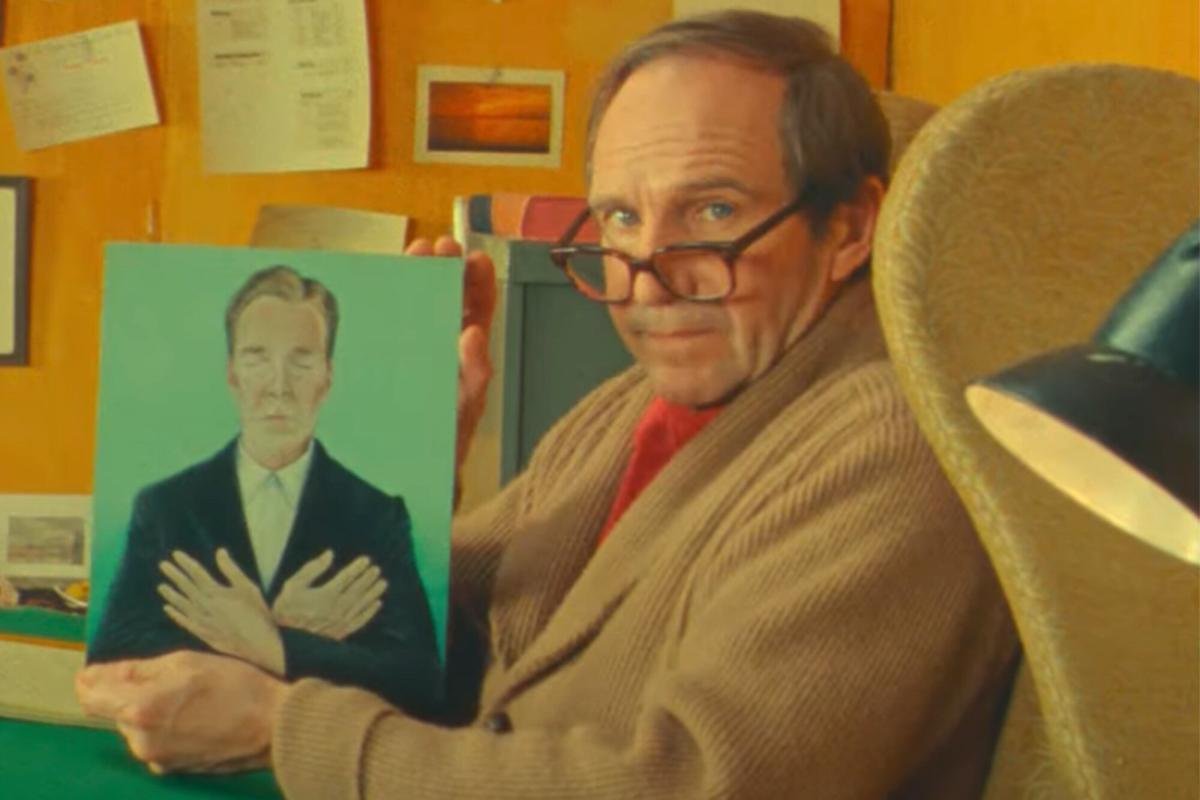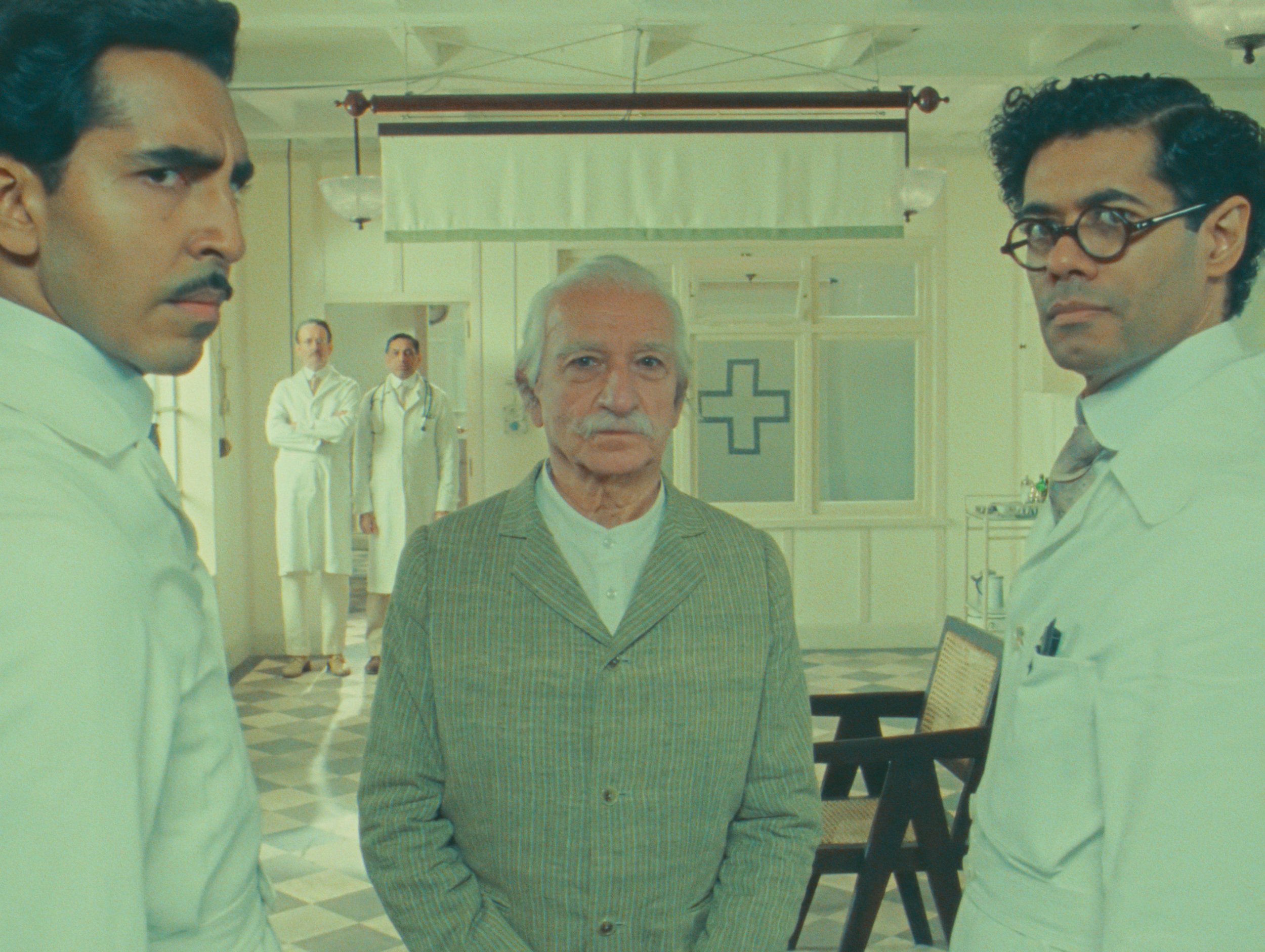The Wonderful Story of Henry Sugar + The Rat Catcher + The Swan + Poison
Wes Anderson aficionados may recall “Welcome to the Dahl House,” an article the filmmaker wrote in 2002 for the New York Times Magazine about his visit to Roald Dahl’s Gipsy House in rural England. There, Anderson sought and received permission from Dahl’s widow Liccy to adapt Fantastic Mr. Fox for the screen, a dream that was lovingly realized seven years later in feature-length, stop-motion form.
The film was a rousing success, and over the years Anderson dropped hints of making additional Dahl adaptations. Though his original works have taken precedence, leaving one to wonder when or if he might want to return to the Dahl well, he’s now done so in a most welcome and unexpected way, crafting film versions of four of the author’s short stories and releasing them via Netflix mere months after his latest theatrical feature, Asteroid City.
Like Fantastic Mr. Fox, the shorts overflow with signature Anderson artistry, yet unlike the former’s whimsically modernized script, this quartet feels far more faithful to the source material. The charming performances by a small company of all-star British players who pop up in at least two tales apiece further ground the works’ time and place, as if Dahl himself were reading them and offering peeks into his head.
And he does — at least the reading part, though the focused visuals essentially deliver the latter as well. Consult any photo or video of the author and it’s clear that Ralph Fiennes’ portrayal is a remarkable recreation of Dahl, down to the wardrobe, furniture, and props, serving as the overarching narrator of each story from Gipsy House’s thoroughly reconstructed writing hut.
But this is no mere story-time sit-down. One never knows when Dahl will pop up to interject some omniscient insights, though having him set up The Wonderful Story of Henry Sugar’s appealing Russian doll (Dahl?) structure, reminiscent of The Grand Budapest Hotel and Asteroid City, provides a delightful inroads to this centerpiece tale and the anthology overall.
The Wonderful Story of Henry Sugar
Clocking in at just under 40 minutes, the longest of the collection is also by far its richest. As with the three 15-ish-minute complementary shorts, Henry Sugar resembles an elevated play as scenic backgrounds and other elements come and go from the frame’s sides and above, granting the narrative a distinct energy and allowing Anderson’s visual creativity to shine in new yet familiar ways.
Dahl’s deadpan humorous introduction of the titular rich young man (Benedict Cumberbatch) soon gives way to a fascinating journal that Henry stumbles upon concerning Imdad Khan (Ben Kingsley), a traveling performer who can see without his eyes, and Calcutta-based Dr. Chatterjee (Dev Patel, speaking bizarrely fast to the point that many of his lines are unintelligible), who chronicles the encounter.
That tale in turn cedes the spotlight to how Imdad gained his powers, including his amusing tutelage under an esteemed yogi (Richard Ayoade), then ricochets back to Chatterjee and then to Henry and the brilliant ways he uses the valuable knowledge gained from this literature.
The Rat Catcher
While the other three shorts aren’t quite this complex, they employ the same creative tactics to bring Dahl’s writing to life. In particular, The Rat Catcher — starring a hilariously committed Fiennes as the eponymous, vermin-resembling exterminator — makes excellent use of invisible yet easily pictured items that would be difficult to convincingly render and are instead left to viewer imagination.
As the pest-control professional sees the job through and entertains/befuddles the local mechanic (Rupert Friend) and newspaper editor (Ayoade), Anderson also mixes in a team of stagehands to great effect — having them hand actors props (with the greatest care, of course) and otherwise advance the story — and also includes some impressive stop-motion animation when mere visualization simply won’t suffice. Such flourishes are also present in Henry Sugar but far more pronounced here.
The Swan
With its tight storytelling and consistent wit, The Rat Catcher may be the most complete feeling short of the bunch. Yet packing the biggest emotional wallop is The Swan, in which Friend’s Peter Watson recalls an eventful day from his boyhood in the clutches of three bullies, placing his adult self in some precarious flashback situations while letting his youthful stand-in (Asa Jennings) endure others.
Though Friend has been a relatively reliable character actor dating back to Joe Wright’s Pride & Prejudice, his depiction of childhood trauma and its lingering effects reveals an impressive new side, one further rounded out by some nifty voice work and making viewers believe that a train — perhaps the most convincing of the unseen production design pieces — is barreling inches above his head.
Poison
Returning to the darkly delicious tonality of The Rat Catcher while nicely weaving in The Swan’s terrifying side, Poison lacks the ambitious production design of its peers, yet compensates with phenomenal facial restraint from Cumberbatch as his Harry attempts to remain as motionless as possible on his cot lest the highly venomous snake that’s come to rest just beneath his pajamas bite him.
Playing Harry’s friend Woods, Patel again spits out rapid-fire speech that’s sorely out of place and, since no one else in the cast is guilty of it and it’s not character-specific, makes one wonder if Anderson lost a bet regarding the actor’s speed-talking abilities and was honor-bound to include this “skill.” Fortunately, Kingsley’s calm turn as Dr. Ganderbai keeps Patel from derailing the whole damn thing, and the physician’s cool thinking under pressure pairs well with Harry’s quiet, tightly-wound fear.
Despite these minor imperfections, all four shorts stand on their own and, like the Dahl stories themselves, already feel timeless and built for plentiful revisiting for years to come. And while being unable to see them in a theater is a bit of a gyp, as is Netflix’s lack of fanfare surrounding these terrific films, the opportunity to revisit them in quick succession is a fine consolation prize.
Grade: A-minus. Rated PG. Available to stream via Netflix
(Photos: Netflix)









